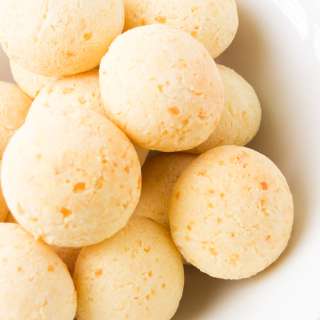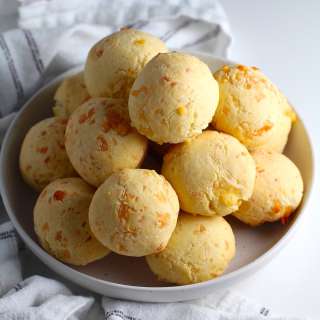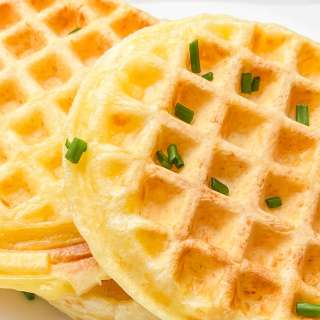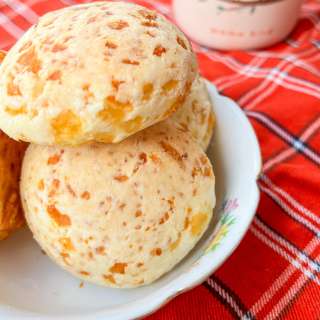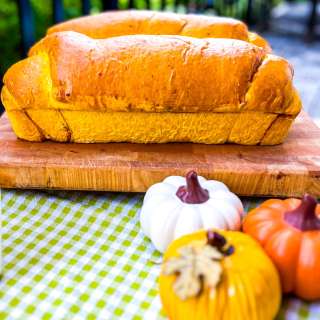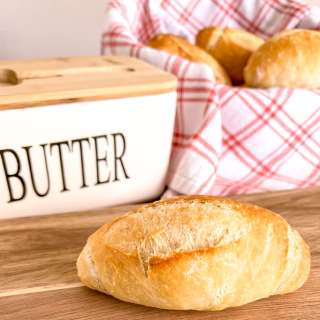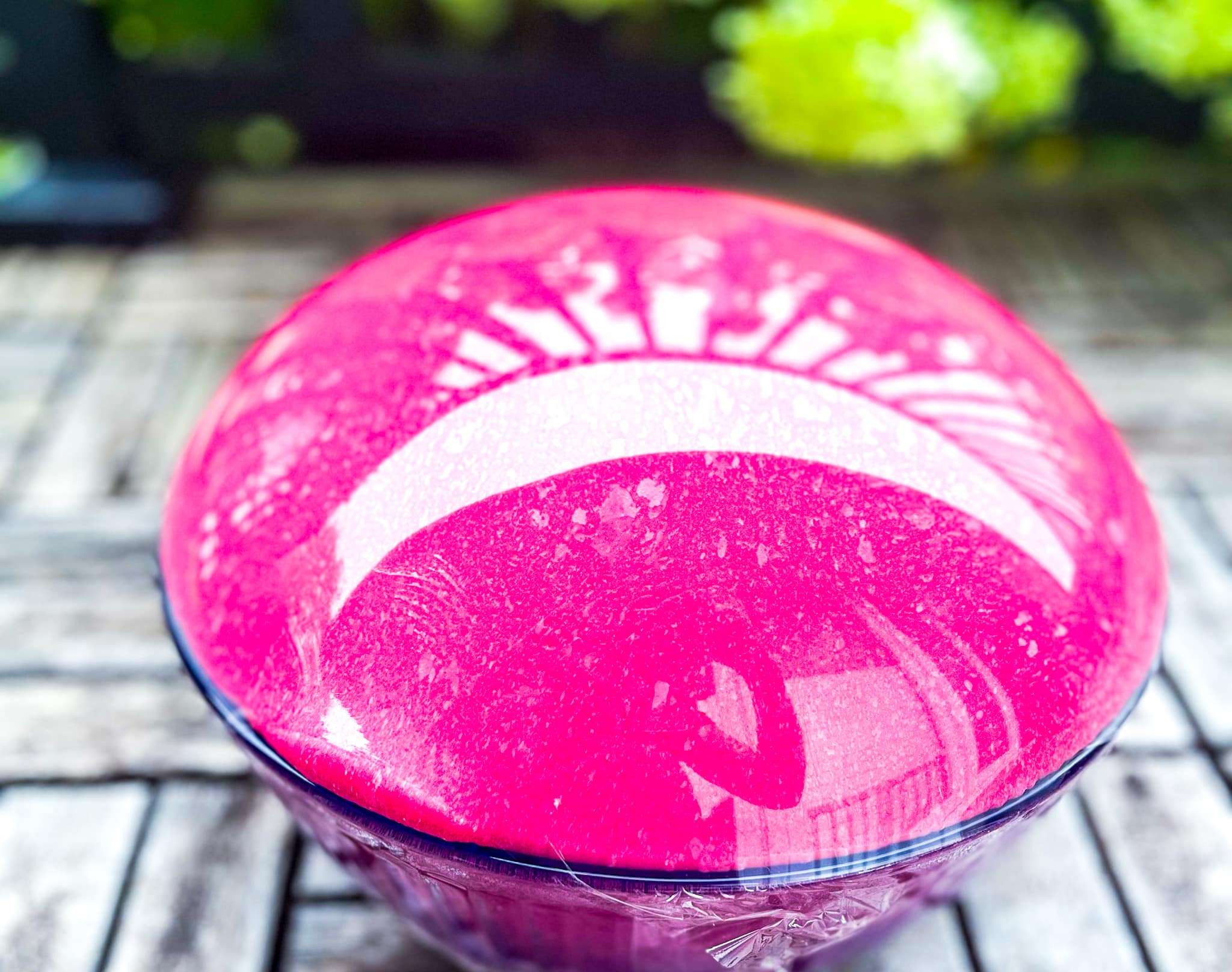
Fluffy Beet Bread
User Reviews
0.0
0 reviews
Unrated

Fluffy Beet Bread
Report
Create a vibrant beet bread that’s as beautiful as it is delicious. A family recipe rooted in tradition, perfect for making lasting memories at the table
Share:
Ingredients
- 2 large beetroots
- 400 ml of water (from boiling the beets)
- 2 eggs
- 30 ml of oil 2 tablespoons
- 2 tablespoons of sugar
- 2 tablespoons of butter
- 20 g of fresh yeast 2 tablespoons
- 1.3 kg of flour add flour gradually, you might might need less, see notes
- salt to taste I used one tablespoon of salt
Egg Wash
- 1 egg white
Instructions
Cook the Beets:
- Wash, peel and chop the beetroots into small pieces.
- In a medium saucepan, add the chopped beets and enough water to cover them. Bring to a boil and cook for about 20-25 minutes, or until the beets are tender and can be easily pierced with a fork.
- Drain the beets, but reserve the cooking water. Measure 400 ml of the beet water and set it aside to cool slightly, along with the beets.
Blend the Beets
- Once the beets have cooled slightly, blend them with the reserved 400 ml of beet cooking water until smooth. Ensure there are no chunks, as this mixture will give your bread its vibrant pink color.
Prepare the Sponge:
- In a large bowl, combine the blended beet mixture, eggs, oil, sugar, melted butter, and yeast. Mix thoroughly until everything is well incorporated.
- Cover the bowl with plastic wrap and let the mixture rest for about 15 minutes, or until it begins to foam and forms a spongy texture.
Form the Dough:
- Once the sponge is ready, add the salt and gradually begin adding the flour to the beet mixture.
- Add the flour slowly, mixing as you go. Stop adding when the dough is soft, smooth, and no longer sticks to your hands. (You may not need all the flour, so add just enough for the right consistency. Stop adding flour when the dough no longer sticks to your hands)
- Transfer the dough to a lightly floured surface and knead by hand for about 10-15 minutes, or until the dough becomes smooth and elastic. (If while kneading the dough, the dough starts to get a little sticky again, just add an extra sprinkle of flour)
First Rise:
- Place the dough in a large bowl, cover with plastic wrap or a towel, and let it rise for 2 hours, or until doubled in size.
Shape the Loaves:
- Punch down the dough to release the air, then divide it into two equal portions.
- Using a rolling pin, roll each part into a rectangle, then roll them up into loaf shapes. Place the shaped loaves into a greased 9×13-inch baking pan, leaving some space between them. Cover them again with plastic wrap and let them rise for another 30 minutes, or until doubled in size.
Brush with Egg White:
- In a small bowl, lightly beat 1 egg white.
- Using a pastry brush, gently brush the tops of the loaves with the egg white to give them a shiny finish when baked.
Second Rise:
- Cover the loaves with plastic wrap and let them rise again for about 30-40 minutes, or until they double in size.
Bake the Bread:
- Preheat your oven to 180°C (350°F).
- Bake the loaves for 35-40 minutes, or until they are golden brown on top and sound hollow when tapped on the bottom.
Cool and Serve:
- Let the loaves cool in the pans for 10 minutes, then transfer to a wire rack to cool completely before slicing.
Notes
- Notes for Success:
- Beet Size: Beets come in various sizes, but this recipe is flexible. Whether your beets are slightly smaller or larger, it usually won’t affect the outcome significantly. For reference, my beets weighed 230g in total after being chopped and cooked. This should help guide you if you're unsure.
- Temperature Matters: Make sure your beet mixture (beets and cooking water) has cooled to a lukewarm temperature before adding the yeast. If the mixture is too hot, it may kill the yeast, preventing the dough from rising.
- Salt Amount: Saltiness can vary depending on the brand or type of salt you're using. I used 1 tablespoon in this recipe, but you may find you need a bit less depending on your preference or the salt you're using.
- Flour Amount: Don’t be tempted to add too much flour! Too much flour will result in a dense loaf. In total, I used 1.2 kg of flour. Here’s how: I added 1 kg initially, and when the dough began to get sticky during kneading, I sprinkled in just enough to stop the stickiness, totaling 1.2 kg. The goal is to add as little flour as possible for the dough to no longer stick to your hands. Trust the dough—if you need slightly more or less flour, that's fine!
- Rising Time: Rising times may vary depending on the temperature of your kitchen. Find the warmest spot in your kitchen and keep the dough away from drafts. In winter, it may take longer for the dough to rise, so be patient, but don't overproof. Once the dough has doubled in size, it's ready.
- Cooling the Bread: It’s best to let your bread cool completely before slicing. The bread will continue to cook as it cools, which prevents a gummy crumb. Waiting ensures the perfect texture!
Nutrition Information
Show Details
Calories
2662kcal
(133%)
Nutrition Facts
Serving: 2large loaves
Amount Per Serving
Calories kcal
% Daily Value*
| Calories | 2662kcal | 133% |
* Percent Daily Values are based on a 2,000 calorie diet.
Genuine Reviews
User Reviews
Overall Rating
0.0
0 reviews
Unrated
Other Recipes





